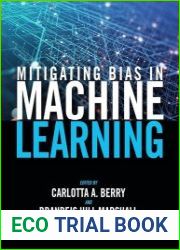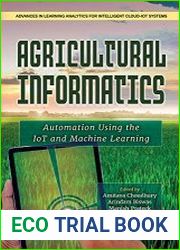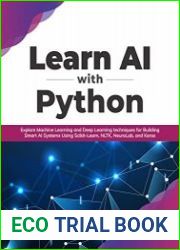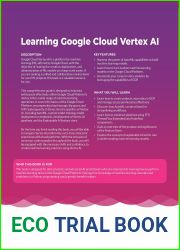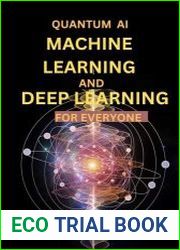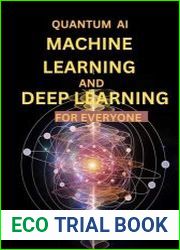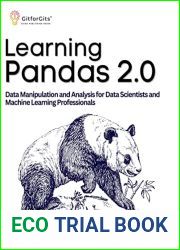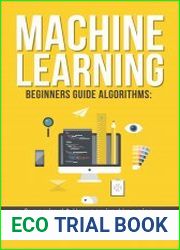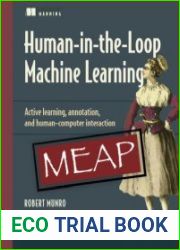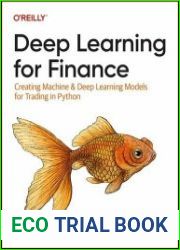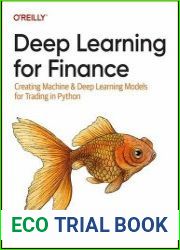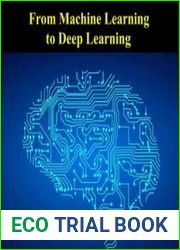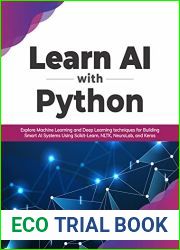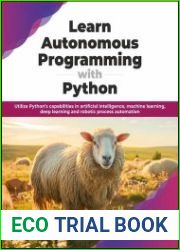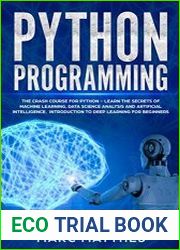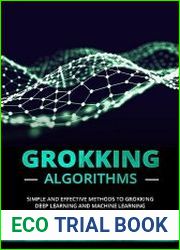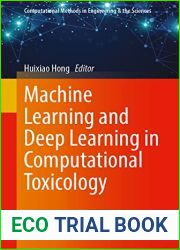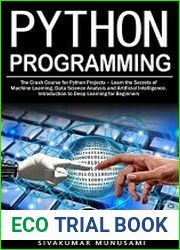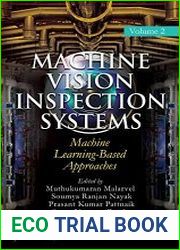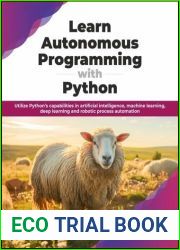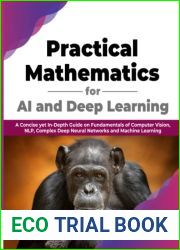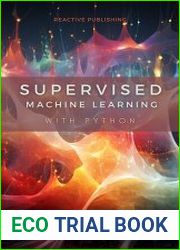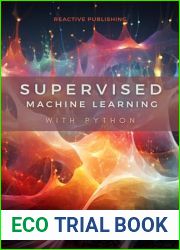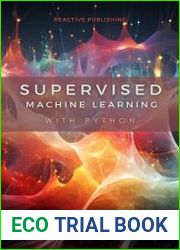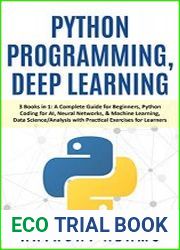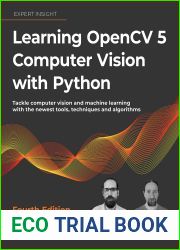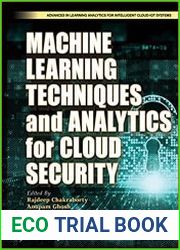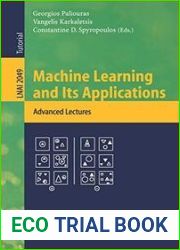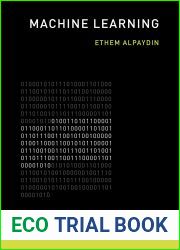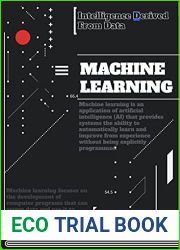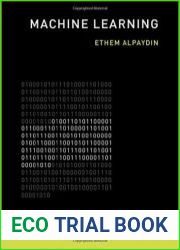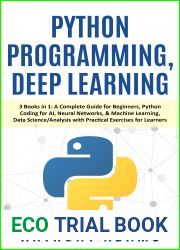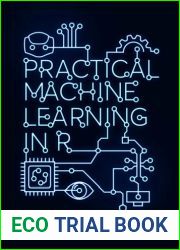
BOOKS - Mitigating Bias in Machine Learning

Mitigating Bias in Machine Learning
Author: Carlotta A. Berry, Brandeis Hill Marshall
Year: 2025
Pages: 249
Format: PDF
File size: 10.7 MB
Language: ENG

Year: 2025
Pages: 249
Format: PDF
File size: 10.7 MB
Language: ENG

Mitigating Bias in Machine Learning: A Guide to Fairness and Inclusivity in AI Development The rapid evolution of machine learning technology has revolutionized numerous aspects of our lives, from healthcare to finance, transportation to education. However, this technological advancement also brings forth a new set of challenges, one of the most pressing being bias in AI systems. Bias in machine learning can have severe consequences, leading to unfair treatment of certain groups, perpetuation of stereotypes, and reinforcement of existing social inequalities. Therefore, it is essential to address these issues and develop strategies to mitigate bias in machine learning. This guide provides a comprehensive overview of the various sources of bias in AI systems, their impact on society, and practical approaches to mitigate these biases. It covers topics such as data bias, algorithmic bias, and cultural bias, and offers insights into how to identify and address these biases in AI development. The book also explores the ethical considerations of fairness and inclusivity in AI development and their significance in creating a more equitable society.
Смягчение предвзятости в машинном обучении: Руководство по справедливости и инклюзивности в развитии ИИ Быстрая эволюция технологий машинного обучения произвела революцию во многих аспектах нашей жизни, от здравоохранения до финансов, транспорта и образования. Однако этот технологический прогресс также порождает новый набор проблем, одной из наиболее насущных из которых является предвзятость в системах ИИ. Предвзятость в машинном обучении может иметь тяжелые последствия, приводя к несправедливому отношению к определенным группам, увековечиванию стереотипов и усилению существующего социального неравенства. Поэтому важно решить эти проблемы и разработать стратегии для смягчения предвзятости в машинном обучении. В этом руководстве представлен всесторонний обзор различных источников предвзятости в системах ИИ, их влияния на общество и практических подходов к смягчению этих предубеждений. Он охватывает такие темы, как смещение данных, алгоритмическое смещение и культурное смещение, и предлагает понимание того, как выявлять и устранять эти смещения в развитии ИИ. Книга также исследует этические соображения справедливости и инклюзивности в развитии ИИ и их значение в создании более справедливого общества.
Atténuer les préjugés dans l'apprentissage automatique : Guide pour l'équité et l'inclusion dans le développement de l'IA L'évolution rapide des technologies de l'apprentissage automatique a révolutionné de nombreux aspects de nos vies, des soins de santé aux finances, en passant par les transports et l'éducation. Toutefois, ces progrès technologiques posent également un nouvel ensemble de problèmes, dont l'un des plus urgents est le biais dans les systèmes d'IA. s préjugés dans l'apprentissage automatique peuvent avoir des conséquences graves, conduisant à un traitement injuste de certains groupes, perpétuant les stéréotypes et aggravant les inégalités sociales existantes. Il est donc important de relever ces défis et d'élaborer des stratégies pour atténuer les biais de l'apprentissage automatique. Ce guide donne un aperçu complet des différentes sources de biais dans les systèmes d'IA, de leur impact sur la société et des approches pratiques pour atténuer ces biais. Il couvre des sujets tels que le déplacement de données, le déplacement algorithmique et le déplacement culturel, et offre une compréhension de la façon d'identifier et de corriger ces déplacements dans le développement de l'IA. livre explore également les considérations éthiques de justice et d'inclusion dans le développement de l'IA et leur importance dans la création d'une société plus juste.
Mitigación del sesgo en el aprendizaje automático: Guía para la equidad y la inclusión en el desarrollo de la IA La rápida evolución de las tecnologías del aprendizaje automático ha revolucionado muchos aspectos de nuestras vidas, desde la salud hasta las finanzas, el transporte y la educación. n embargo, este avance tecnológico también genera un nuevo conjunto de problemas, uno de los más acuciantes es el sesgo en los sistemas de IA. sesgo en el aprendizaje automático puede tener consecuencias nefastas, lo que conduce a un trato injusto hacia ciertos grupos, perpetuando estereotipos y aumentando las desigualdades sociales existentes. Por lo tanto, es importante resolver estos problemas y desarrollar estrategias para mitigar el sesgo en el aprendizaje automático. Este manual ofrece una visión general completa de las diferentes fuentes de sesgo en los sistemas de IA, sus efectos en la sociedad y los enfoques prácticos para mitigar estos prejuicios. Abarca temas como el desplazamiento de datos, el desplazamiento algorítmico y el desplazamiento cultural, y ofrece una comprensión de cómo identificar y eliminar estos desplazamientos en el desarrollo de la IA. libro también explora las consideraciones éticas de justicia e inclusión en el desarrollo de la IA y su importancia en la creación de una sociedad más justa.
Attenuare il pregiudizio nell'apprendimento automatico: Manuale per l'equità e l'inclusione nello sviluppo dell'IA L'evoluzione rapida delle tecnologie di apprendimento automatico ha rivoluzionato molti aspetti della nostra vita, dalla sanità alla finanza, ai trasporti e all'istruzione. Ma questo progresso tecnologico crea anche una nuova serie di problemi, uno dei più urgenti dei quali è il pregiudizio nei sistemi di IA. Il pregiudizio nell'apprendimento automatico può avere conseguenze pesanti, causando ingiustizie nei confronti di determinati gruppi, perpetuando stereotipi e aumentando le disuguaglianze sociali esistenti. È quindi importante risolvere questi problemi e sviluppare strategie per ridurre i pregiudizi nell'apprendimento automatico. Questa guida fornisce una panoramica completa delle diverse fonti di pregiudizio nei sistemi di IA, del loro impatto sulla società e degli approcci pratici per mitigare questi pregiudizi. occupa di temi quali lo spostamento dei dati, lo spostamento algoritmico e lo spostamento culturale, e si propone di capire come individuare ed eliminare questi spostamenti nello sviluppo dell'IA. Il libro esplora anche le considerazioni etiche di equità e inclusione nello sviluppo dell'IA e il loro significato nella creazione di una società più equa.
Behebung von Verzerrungen beim maschinellen rnen: Ein itfaden für Gerechtigkeit und Inklusion in der KI-Entwicklung Die rasante Entwicklung der Technologien des maschinellen rnens hat viele Aspekte unseres bens revolutioniert, von der Gesundheitsversorgung bis hin zu Finanzen, Transport und Bildung. Dieser technologische Fortschritt wirft jedoch auch eine neue Reihe von Problemen auf, von denen eine der drängendsten die Voreingenommenheit in KI-Systemen ist. Vorurteile beim maschinellen rnen können schwerwiegende Folgen haben, die zu einer unfairen Behandlung bestimmter Gruppen führen, Stereotypen aufrechterhalten und bestehende soziale Ungleichheiten verstärken. Daher ist es wichtig, diese Probleme anzugehen und Strategien zu entwickeln, um Verzerrungen im maschinellen rnen zu mildern. Dieser itfaden bietet einen umfassenden Überblick über die verschiedenen Quellen von Voreingenommenheit in KI-Systemen, ihre Auswirkungen auf die Gesellschaft und praktische Ansätze zur Linderung dieser Voreingenommenheit. Es deckt Themen wie Datenverschiebung, algorithmische Verschiebung und kulturelle Verschiebung ab und bietet Einblicke, wie diese Verschiebungen in der KI-Entwicklung identifiziert und behoben werden können. Das Buch untersucht auch ethische Überlegungen zu Gerechtigkeit und Inklusion in der KI-Entwicklung und deren Bedeutung für die Schaffung einer gerechteren Gesellschaft.
Mitigating Bias in Machine arning: A Guide to Equity and Inclusiveness in AI Development Szybka ewolucja technologii uczenia maszynowego zrewolucjonizowała wiele aspektów naszego życia, od opieki zdrowotnej do finansowania, transportu i edukacji. Jednak ten postęp technologiczny generuje również nowy zestaw problemów, z których jednym z najbardziej palących jest stronniczość w systemach AI. Uprzedzenia w nauce maszynowej mogą mieć fatalne konsekwencje, prowadząc do nieuczciwego traktowania niektórych grup, utrwalania stereotypów i wzmacniania istniejących nierówności społecznych. Dlatego ważne jest zajęcie się tymi kwestiami i opracowanie strategii mających na celu złagodzenie uprzedzeń w procesie uczenia maszynowego. Przewodnik ten zawiera kompleksowy przegląd różnych źródeł uprzedzeń w systemach grypy ptaków, ich wpływu na społeczeństwo oraz praktyczne podejścia do łagodzenia tych uprzedzeń. Obejmuje ona takie tematy, jak stronniczość danych, uprzedzenia algorytmiczne i stronniczość kulturowa, i oferuje wgląd w sposób identyfikowania i reagowania na te uprzedzenia w rozwoju sztucznej inteligencji. Książka bada również etyczne względy uczciwości i integracyjności w rozwoju sztucznej inteligencji oraz ich znaczenie w tworzeniu sprawiedliwszego społeczeństwa.
''
Makine Öğreniminde Önyargıyı Azaltma: Yapay Zeka Gelişiminde Eşitlik ve Kapsayıcılık Kılavuzu Makine öğrenimi teknolojilerinin hızlı evrimi, sağlıktan finansa, ulaşım ve eğitime kadar hayatımızın birçok alanında devrim yarattı. Bununla birlikte, bu teknolojik ilerleme aynı zamanda en acil olanlardan biri olan AI sistemlerinde önyargı olan yeni bir dizi sorun yaratmaktadır. Makine öğrenimindeki önyargı, bazı grupların haksız muamele görmesine, stereotiplerin sürdürülmesine ve mevcut sosyal eşitsizliklerin artmasına yol açarak korkunç sonuçlar doğurabilir. Bu nedenle, bu sorunları ele almak ve makine öğrenimindeki önyargıları azaltmak için stratejiler geliştirmek önemlidir. Bu kılavuz, YZ sistemlerindeki farklı önyargı kaynaklarına, toplum üzerindeki etkilerine ve bu önyargıları hafifletmek için pratik yaklaşımlara kapsamlı bir genel bakış sunmaktadır. Veri önyargısı, algoritmik önyargı ve kültürel önyargı gibi konuları kapsar ve AI gelişiminde bu önyargıların nasıl tanımlanacağı ve ele alınacağı konusunda fikir verir. Kitap ayrıca, AI'nın gelişiminde adalet ve kapsayıcılığın etik düşüncelerini ve daha adil bir toplum yaratmadaki önemini araştırıyor.
التخفيف من التحيز في التعلم الآلي: دليل للإنصاف والشمولية في تطوير الذكاء الاصطناعي أحدث التطور السريع لتقنيات التعلم الآلي ثورة في العديد من جوانب حياتنا، من الرعاية الصحية إلى التمويل والنقل والتعليم. ومع ذلك، فإن هذا التقدم التكنولوجي يولد أيضًا مجموعة جديدة من المشاكل، واحدة من أكثرها إلحاحًا هي التحيز في أنظمة الذكاء الاصطناعي. يمكن أن يكون للتحيز في التعلم الآلي عواقب وخيمة، مما يؤدي إلى معاملة غير عادلة لمجموعات معينة، وإدامة الصور النمطية، وتضخيم التفاوتات الاجتماعية الحالية. لذلك من المهم معالجة هذه المشكلات ووضع استراتيجيات للتخفيف من التحيز في التعلم الآلي. يقدم هذا الدليل لمحة عامة شاملة عن مصادر التحيز المختلفة في أنظمة الذكاء الاصطناعي، وتأثيرها على المجتمع، والنهج العملية للتخفيف من هذه التحيزات. يغطي موضوعات مثل تحيز البيانات والتحيز الخوارزمي والتحيز الثقافي، ويقدم رؤى حول كيفية تحديد ومعالجة هذه التحيزات في تطوير الذكاء الاصطناعي. يستكشف الكتاب أيضًا الاعتبارات الأخلاقية للإنصاف والشمولية في تطوير الذكاء الاصطناعي وأهميتها في خلق مجتمع أكثر عدلاً.
減輕機器學習中的偏見:AI發展中的公平和包容性指南機器學習技術的快速發展徹底改變了我們生活的許多方面,從醫療保健到金融,交通和教育。但是,這種技術進步也帶來了一系列新問題,其中最緊迫的問題之一是AI系統中的偏見。機器學習中的偏見可能會產生可怕的後果,導致對某些群體的不公平對待,陳規定型觀念的延續以及現有社會不平等現象的加劇。因此,重要的是要解決這些問題並制定策略以減輕機器學習中的偏見。該指南全面概述了人工智能系統中偏見的各種來源,它們對社會的影響,以及減輕這些偏見的實際方法。它涵蓋了數據位移,算法位移和文化位移等主題,並提供了有關如何識別和解決AI發展中的這些位移的見解。該書還探討了AI發展中公平和包容性的倫理考慮及其對建立更公平社會的意義。







